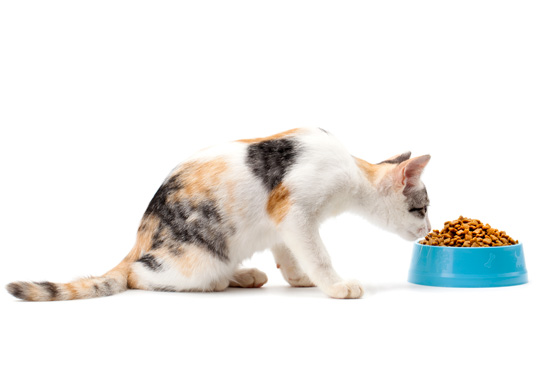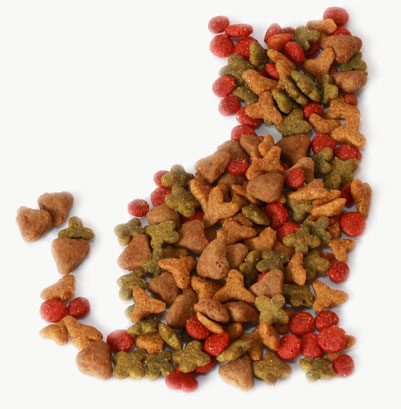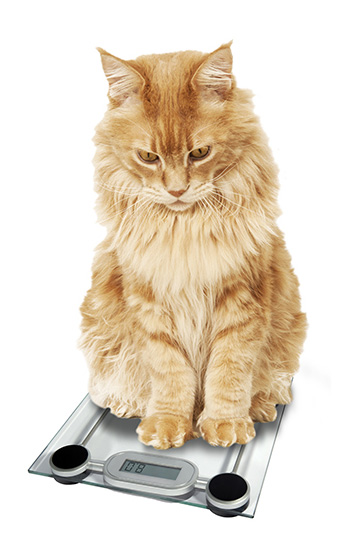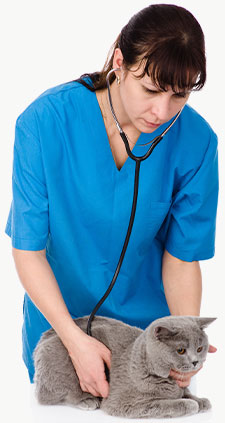Is Your Cat Sick?
Cats are known for hiding illness, but when a cat is not eating it can be a telling sign that something is wrong with your pet’s health.

Has your cat's appetite changed?
Like their owners, cats can lose their appetite when they’re sick. Unlike us, cats do not tolerate even short periods of inadequate nutrition. It’s important to recognize signs of illness early, particularly when a cat is not eating.
When should I take my cat to the vet?
You should take your cat to the veterinarian immediately when your adult cat hasn’t eaten in more than 24 hours or just 12 hours for kittens younger than 6 weeks old. Make an appointment with your vet if this occurs.

How important is nutrition to cat health?
Cats require more protein and specific amino acids— among other nutritional requirements — compared to other animals.
Prolonged poor food intake in cats can lead to:
- Impaired metabolic function
- Delayed wound healing
- Increased risk of infectious disease
- Altered metabolism
- Change in liver function

Is your cat losing weight?
Without eating, cats can rapidly lose weight. A change in body weight of more than 0.5% to 2% in a week can be a cause for concern — even in obese cats.
That’s because unexplained weight loss may indicate an underlying disease. In fact, unexplained weight loss in cats is a known sign of conditions such as:
- Kidney (renal) disease
- Hyperthyroidism
- Diabetes Mellitus
- Gastrointestinal disease
- Metabolic
- Liver (hepatic) disease
- Pancreatitis
- Pain from any source
- Dental disease
- Neurologic disease
If your cat is experiencing unexplained weight loss, you’re not alone. A survey showed roughly nine million cats in the United States visit the veterinarian due to unexplained weight loss and/or lack of appetite due to underlying conditions annually.
What if my cat begins eating again?
Simply seeing your cat eat does not mean he is receiving adequate nutrition or that things are improving on the inside. Remaining underweight can negatively impact cat health overall. Weight gain — and maintenance of an ideal body condition — is the real goal.

How can I help my cat?
Compromised nutrition combined with an underlying disease create a complicated situation. It’s more difficult to help cats recover from disease when their bodies don’t have the fuel needed to properly heal.
That’s why many veterinarians recommend nutritional support for feline patients who have lost weight because they refuse to eat. There are safe and convenient medications available to help.
While getting your cat back at the food bowl is a good first step, the ultimate goal is to get them back to their ideal weight — and maintain their ideal weight in the long run.
Call your veterinarian for an appointment or, if you don’t already have a veterinarian, learn more about finding a Cat Friendly Practice® and making visits to the veterinarian easier.
Picky or Sick?
If your cat’s not eating, it could be a sign of a serious health issue. Take this 5-question quiz to help determine when it’s time to take your cat to the veterinarian.
Start QuizDisclaimer: This information is not intended to replace discussions with an animal medical professional. Discuss behaviorial and medical concerns with your veterinarian.
Content references can be made available upon inquiry. This site is intended for US residents only.

Share this Quiz